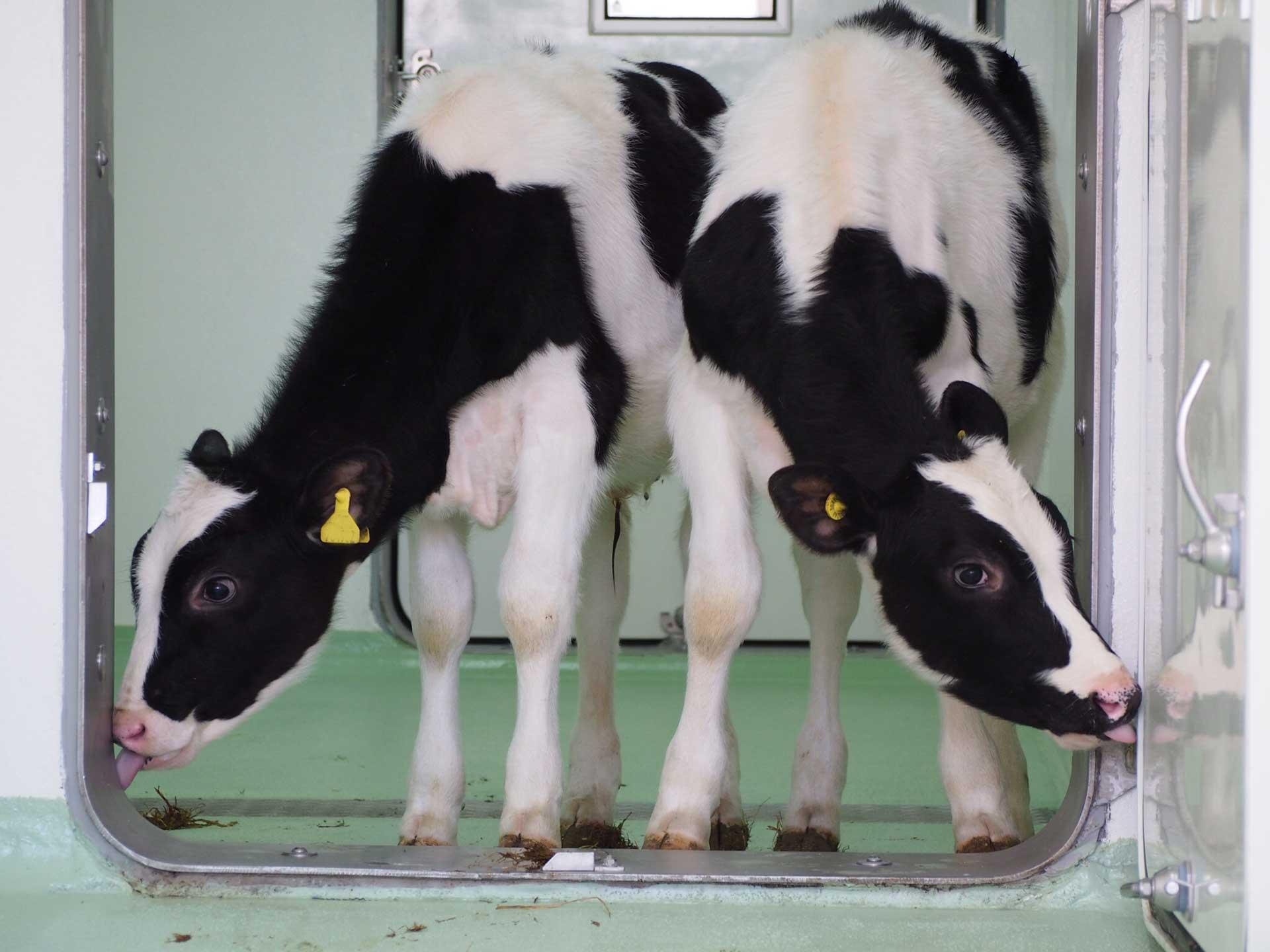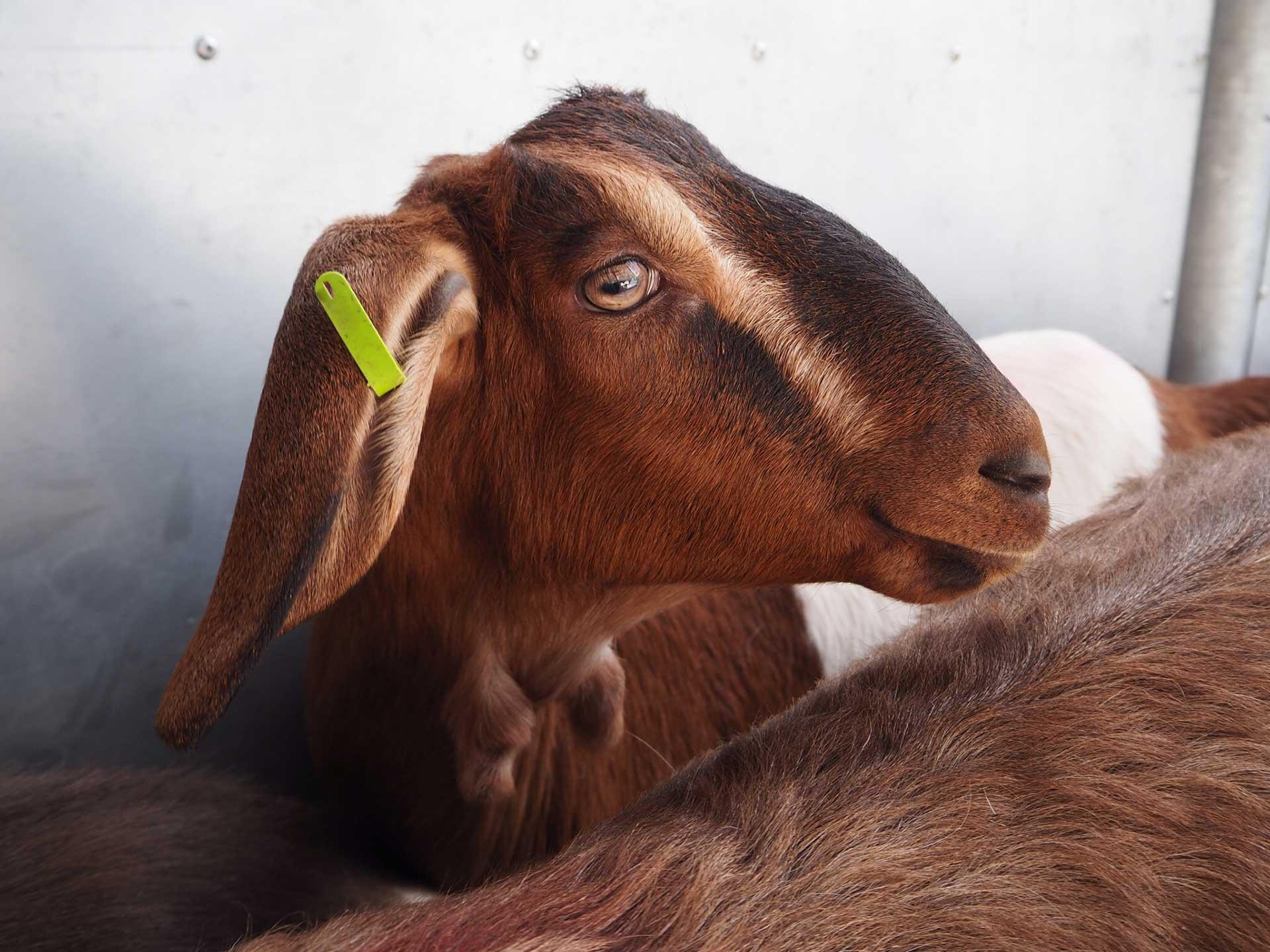The work our scientists undertake is governed and regulated by the Animals (Scientific Procedures) Act 1986 (ASPA).
ASPA regulates procedures that are carried out on ‘protected animals’ for scientific purposes that may cause pain, suffering, distress or lasting harm. ‘Protected animals’ are defined as all living vertebrates, other than a human, including certain immature forms and any living cephalopod.
The Act regulates the breeding and supply of certain species of ‘protected animals’ for use in regulated procedures or for the scientific use of their organs or tissues. The Act also regulates the methods used to humanely cull these animals.
Home Office Licencing
The conduct of using ‘protected animals’ for scientific research is authorised by licences. Licences are issued by the Home Office covering the place (Establishment Licence), the project (Project Licence) and the person (Personal Licence):
- The Pirbright Institute holds an establishment licence, along with a number of project licences and personal licences.
- The Home Office monitor our standards, practices and compliance with ASPA and the conditions of all Home Office licences. Inspectors visit our facilities periodically and can visit unannounced.
Project evaluation
European Directive 2010/63 and the amended ASPA require extensive project evaluation, taking into consideration ethical implications associated with the use of animals in scientific research. This is pivotal to project authorisation, and requires the implementation of the principles of replacement, reduction and refinement (the 3Rs) in those projects.
Project licences are reviewed by The Pirbright Institute’s Animal Welfare & Ethical Review Body (AWERB). The Committee provides constructive feedback and any recommendations they feel appropriate for the programme of work. These comments and/or recommendations must be addressed to the satisfaction of the AWERB before the project licence application or amendment is submitted to the Home Office for approval.
The process enables the establishment holder to meet in full the Standard Conditions for holding the establishment licences at both sites and to provide assurance that all aspects of the 3R’s have been fully considered in new applications and throughout the life of projects.
All research using animals at The Pirbright Institute is considered at the Animal Welfare Ethical Review Body (AWERB). The AWERB has a remit to consider and review ethical issues regarding the operation of Animals (Scientific Procedures) Act 1986 (ASPA).
However before any projects reach consideration by the AWERB, The Pirbright Institute has a prescribed process in place for all project licence holders – this is a rigorous process which should culminate in the submission of an application to the AWERB. The key steps are as follows:
- A potential project licence holder nomination is considered by the Institute’s Science Committee;
- With the Science Committee’s approval, nominee will be required to pass accredited Home Office modular training;
- Nominee attends an AWERB meeting to ensure awareness of the AWERB’s objectives;
- Sub-committee meeting is held to consider the draft application. This meeting consists of the applicant, Named Veterinary Surgeon (NVS), Named Animal Care and Welfare Officer (NACWO), Home Office Liaison Contact and Chair of AWERB;
- Actions arising from the sub-committee are completed by the applicant;
- Nominee presents application at AWERB;
- Any actions are completed by the applicant with the approval of the AWERB prior to submission to the Home Office.
Once a project reaches the AWERB, the Committee has to be able to balance the possible pain, suffering, distress or lasting harm that will be incurred by an animal under a procedure with the objectives of the project. Each procedure is discussed to ensure where possible, further reduction, replacement or refinement can be included.
Formal statistical review is part of the ethical review process to ensure that all studies are designed appropriately and have sufficient statistical power to detect effects that are biologically meaningful.
The core tasks of the AWERB are to:
- Advise staff dealing with animals at The Pirbright Institute on matters related to the welfare of animals including their acquisition, accommodation, care and use;
- Advise on the application of reduction, refinement, replacement (3Rs) and all relevant technical and scientific developments;
- Establish and review management and operational processes for monitoring, reporting and follow-up in relation to the welfare of animals housed or used in The Pirbright Institute;
- Follow the development and outcome (retrospective review) of projects carried out, taking into account the effect on the animals used and to identify and advise on elements that could further contribute to the 3Rs;
- Promote a ‘culture of care’ within The Pirbright Institute and in the wider community.
The AWERB is made up of representatives of the Chair, project and personal licence holders, Named Animal Care and Welfare Officers (NACWO’s), the Named Veterinary Surgeon (NVS), local management, lay members and independent members. The AWERB has an open door policy and welcomes members of staff and students to ‘sit in’ on a meeting.
Non-technical summaries
All non-technical summaries of current project licences granted to The Pirbright Institute’s researchers under the Animals (Scientific Procedures) Act 1986 are published below.
- Understanding the replication of and immune responses to coronaviruses in pigs
- Understanding mechanisms for controlling picornavirus infection
- Testing and assessing FMD vaccines
- Supply of ruminant and porcine blood for virus infection research and diagnostics
- Novel vaccine development for porcine reproductive and respiratory syndrome virus
- Investigations into lumpy skin disease virus
- Infection and immunity of avian viruses
- Immunity, pathogenesis and transmission of Culicoides-borne viruses of ruminants
- Immunity to influenza viruses in pigs
- IBV: attenuation and vaccine development
- African swine fever virus control
- Characterisation of antibodies produced by cattle to rumen methanogens
- Vaccines to protect against Nipah virus


